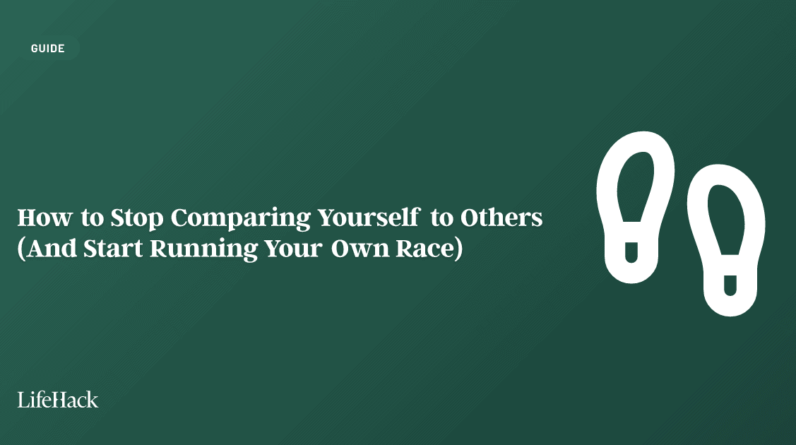
Many of us face times where we feel empty and lack fulfillment.
Of course, some people may experience this more intensely than others, and it can result in varying levels of depression, anxiety, and other mental health issues.
Feeling empty means you are experiencing a void of value, purpose, or significance in your life. It can leave you feeling hollow and devoid of any emotions. It’s certainly a difficult emotion to endure.
Today, we’ll address the epidemic of feeling empty that is becoming increasingly common among people of all ages.
The goal is to provide strategies and resources for those who are struggling with this emotional state. By understanding why we may feel empty and how to address it, we can begin to find ways to fill the void in our lives.
Causes of Feeling Empty
One of the most common causes of feeling empty is loneliness, which can be brought on by a lack of meaningful relationships or social connections.
Additionally, feeling empty can be caused by loss, grief, trauma, or even boredom and a lack of purpose. Whatever the source may be, it’s important to recognize that this feeling is a normal emotion many people experience at some point in their lives.
The lack of meaningful personal contact causes feelings of emptiness in many, from an inability to foster relationships on a deeper level. In turn, this can leave us longing for more connection.
Strategies for Addressing Feeling Empty
1. Connect with Others
Finding a way to confront feelings of emptiness can be daunting, but it doesn’t have to be done alone.
Gathering support from people who care and understand is an invaluable first step in the journey towards personal growth and fulfillment. This support can come in many forms, such as family, friends, or a therapist.
Talking to someone you trust and who cares about you can provide a listening ear and a safe space to express your feelings. Having someone to confide in can also help you gain a new perspective on your situation and offer advice on how to move forward.
In addition to personal support, seeking help from a mental health professional can also be beneficial.
A therapist can provide guidance and support in overcoming feelings of emptiness and help you develop coping mechanisms to deal with these emotions. They can also provide a tailored approach to your situation, including tools and strategies to help you find meaning and purpose in life.
2. Find Meaningful Activities & Hobbies
Additionally, engaging in activities and hobbies that bring meaning and joy into your life can help to fill the void.
Whether it’s taking up a new hobby, joining an organization or club, or dedicating yourself to learning a new skill or language – these activities can help bring satisfaction and purpose to your life.
Participating in activities outside of work can help you grow as an individual and give you something to look forward to on days when you feel empty. Finally, carving out time for yourself and focusing on what brings personal fulfillment can contribute positively to your overall wellbeing.
3. Develop Self-Awareness & Acceptance
Lastly, developing self-awareness and acceptance can be a powerful tool for identifying the underlying causes of feeling empty.
Start by exploring what is going on in your life and examining how each element affects your sense of wellbeing. Then, evaluate the causes of any feelings of emptiness and decide which areas need to be addressed.
Self-acceptance also comes into play here, as it’s essential to commit time to acknowledging all parts of yourself – both positive and negative – in order to create a balanced understanding of who you are.
From there, you can work towards developing an action plan that will help you move forward positively in addressing whatever underlying issues arise.
4. Boost Your Beliefs
Your beliefs play an important role in helping to reduce feelings of emptiness.
Utilizing prayer, meditation, or spiritual practices can help to provide solace and a sense of purpose. Additionally, connecting with a community can be especially powerful in providing emotional support and guidance on the path towards healing.
Participating in religious ceremonies, taking part in volunteering or charitable work, or just dedicating time to reflecting on your beliefs can all drastically reduce feelings of darkness and despair. They play such an integral role in our lives, serving as an invaluable resource for finding strength when we feel empty.
5. Step Out Of Your Comfort Zone
When you feel empty, stepping out of your comfort zone may be just what you need to start regaining a sense of fulfillment and joy.
Not only can this help to alleviate the intense feelings of emptiness, but it can also inspire creative thinking and a new outlook on life.
Trying something completely different from your usual routine such as taking up a new hobby or visiting a place you’ve never been before can open up possibilities for personal growth that can be incredibly rewarding.
Meanwhile, challenging yourself with activities like public speaking, rock climbing, learning a language, etc., can all help to boost confidence when you’re feeling isolated and inadequate.
All in all, getting out of your comfort zone is an invaluable tool for pushing through moments of darkness and finding meaning again in life.
Conclusion
The epidemic of feeling empty is becoming increasingly common, but with the right strategies, we can find ways to cope and even overcome this emotional state.
By understanding why we may feel empty and how to address it, we can begin to fill the void in our lives. With support from loved ones, meaningful activities, self-awareness and getting out of our comfort zones, we can all learn how to better manage our feelings of emptiness.
For additional resources on this topic, visit the following:
The National Alliance on Mental Illness
Anxiety and Depression Association of America
Updated from Feb 20, 2023
Photo by Japheth Mast







